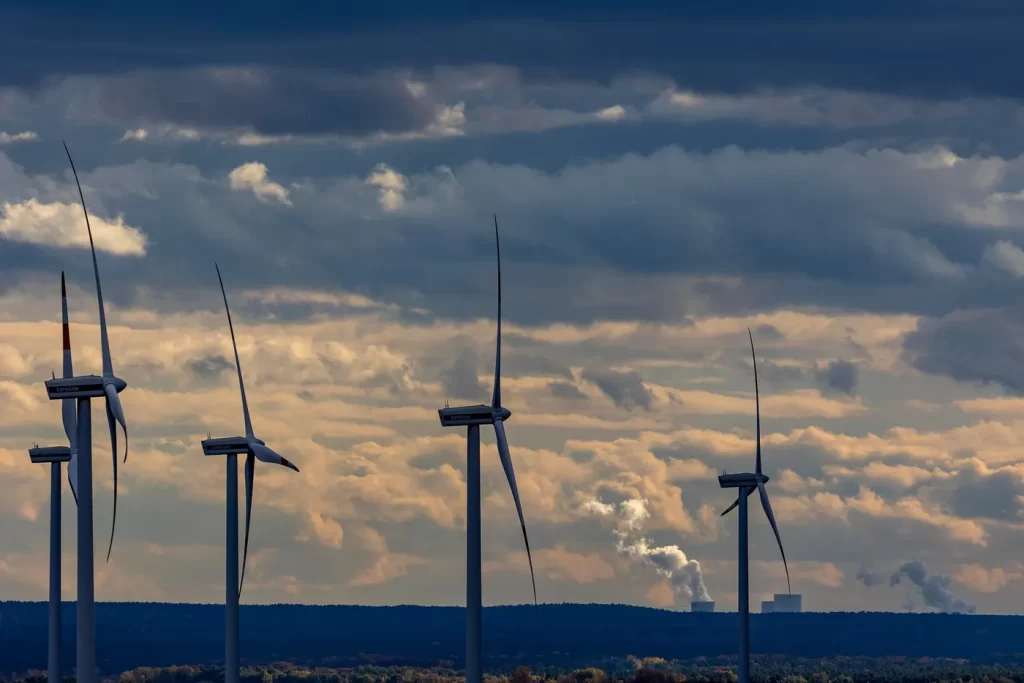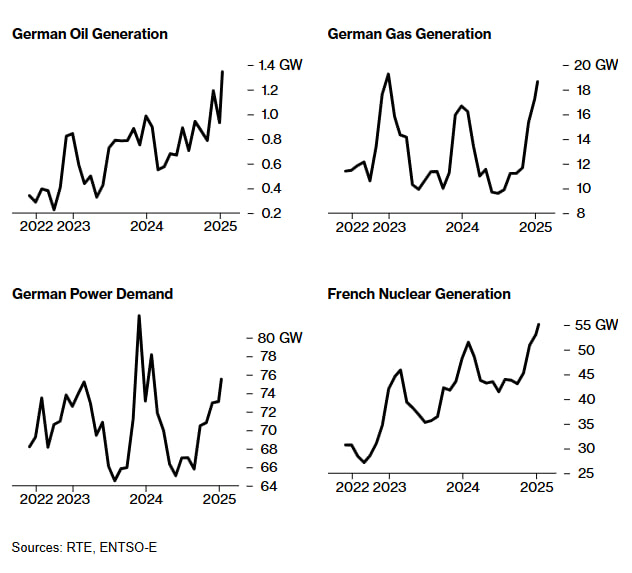
The cost of abandoning nuclear energy: what Kazakhstan can learn from Germany's experience
Published date: January 14, 2025
Author: Davletiyarova Aibope

The news agency Bloomberg recently reported a sharp increase in electricity prices in Germany, with the cost per megawatt-hour once again exceeding 200 euros. This rise is linked to a phenomenon known as “Dunkelflaute,” when a significant part of the country experiences a lack of wind and sunlight, leading to a sharp decline in energy production from renewable sources. This situation has once again highlighted the importance of reliable energy sources, including nuclear power, which experts have repeatedly mentioned.
According to Bloomberg, Germany’s electricity production from oil has reached its highest level since 2017. This occurred amidst an anticipated decline in wind power generation. On January 13, electricity production at gas-fired power plants rose to its highest level in two years. By January 15, wind power generation had significantly decreased, mirroring the “Dunkelflaute” scenario that occurred in November.
Germany Is Burning More Oil and Gas to Keep Up With Power Demand
Monthly maximum of hourly generation and demand data

The Atomic Industry Development Association (AIDA) previously raised concerns about the consequences of Germany’s decision to phase out nuclear energy. An article on the Zakon.kz [2] website emphasized that this decision has led to serious economic and political issues. As AIDA Chairman Aldiyar Toktarov noted, “Germany’s decision to gradually abandon nuclear energy has resulted in significant consequences for the economy and the country’s political stability. Rising electricity costs have become a major challenge for large industrial enterprises, affecting their expenses and competitiveness in global markets.”
The phase-out of nuclear energy has also resulted in increased carbon emissions and dependence on imported fossil fuels. This, in turn, has impacted energy availability for the population and created additional economic constraints.
Germany’s energy crisis serves as an important lesson for Kazakhstan as it plans its energy future. With substantial uranium reserves and a developing nuclear industry, Kazakhstan has the opportunity to avoid Germany’s mistakes. As Mark Nelson, Managing Director of Radiant Energy Group, emphasized in an interview with Zakon.kz [3] in August 2024, Germany’s decision to abandon nuclear energy has resulted in notable challenges and complexities. “Germany has become dependent on hydrocarbons, exacerbating its energy and climate challenges,” Nelson stated. According to him, Kazakhstan should take this experience into account when making decisions about building a nuclear power plant.
Amid demographic growth and the aging of its existing thermal power plants, Kazakhstan faces the need to replace outdated capacity. “We have reached the point where many thermal power plants are nearing their ‘retirement age,’ and this generation will have to be replaced,” Aldiyar Toktarov emphasized [4].
According to AIDA experts, nuclear energy can provide stable and environmentally friendly energy for the country. France serves as an example, where 70% of electricity is generated by nuclear power plants, enabling stable tariffs. In contrast, Germany’s decision to abandon nuclear energy has led to a sharp increase in electricity costs.
Germany’s energy crisis highlights the importance of long-term planning in energy policy. For Kazakhstan, nuclear energy is not only a source of stability and environmental sustainability but also an opportunity to maintain economic competitiveness. By leveraging international experience and learning from the mistakes of other countries, Kazakhstan can ensure its energy security and sustainable development.